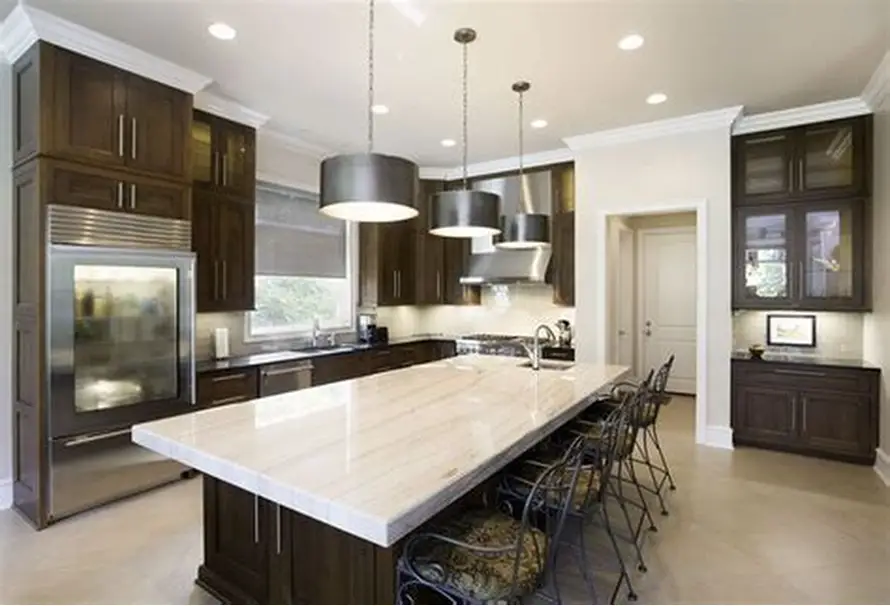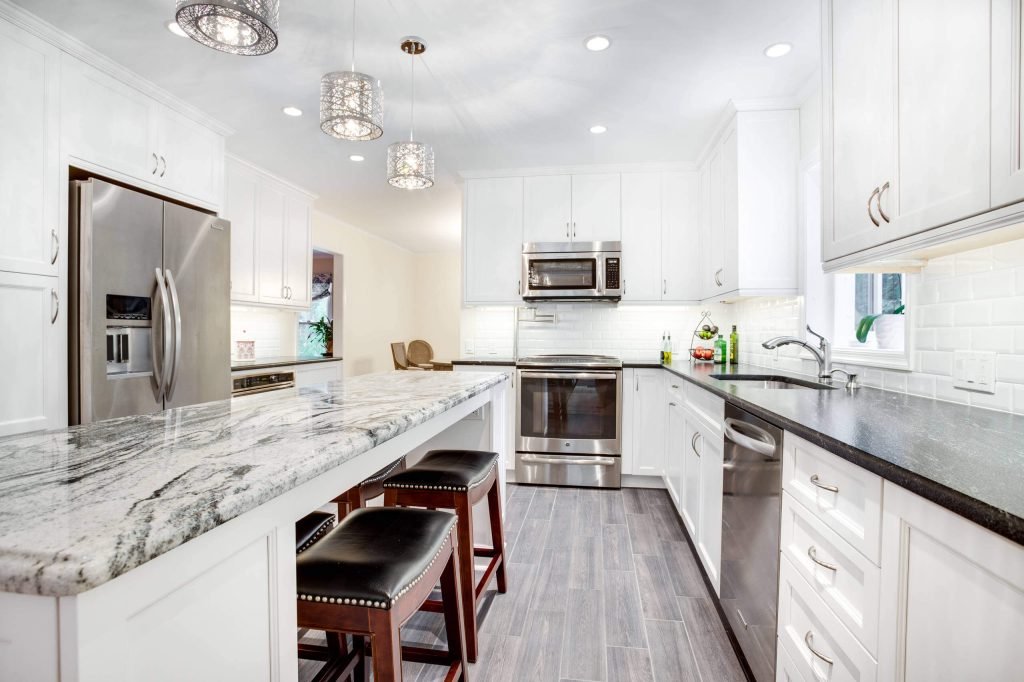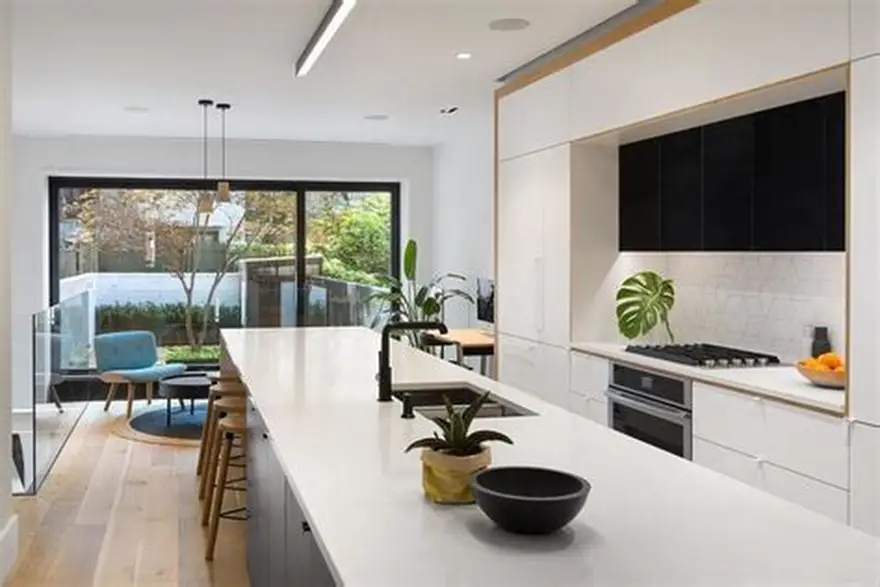Introduction
Choosing the right countertop material for your kitchen or bathroom often comes down to two premium options: granite and quartz. Both materials are known for their beauty, durability, and long-term value—but which one costs more? The answer isn’t as straightforward as you might think, because it depends on factors like quality, rarity, installation, and maintenance.
In this guide, we’ll break down the cost differences, explore the benefits of each, and give you the tools to make the right decision for your home. For more on the fabrication process, visit stone fabrication.

Understanding Granite
Granite stone is a 100% natural material formed from cooled magma deep within the Earth’s crust. It’s quarried, cut into slabs, and polished before making its way to your countertops. Each slab is unique in pattern and color, meaning no two granite countertops are exactly the same.
Granite is heat-resistant, durable, and scratch-resistant, but it does require periodic sealing to maintain its beauty. For a deeper look at how granite compares to other surfaces, check is granite countertops cheaper or more expensive than marble/corian/concrete/solid surface?.

Understanding Quartz
Quartz countertops are engineered stone surfaces, made from around 90–95% ground quartz crystals combined with resins and pigments. The result is a non-porous, low-maintenance surface that resists stains, scratches, and bacterial growth.
Because quartz is man-made, it offers more control over color and pattern, giving homeowners a wide variety of styles—from uniform solids to marble-like veining.
Granite vs. Quartz: Cost Overview
| Material | Typical Cost Per Square Foot (Installed) |
|---|---|
| Granite | $40 – $200 |
| Quartz | $50 – $150 |
Granite can be more affordable in its common varieties but can also surpass quartz prices when you select exotic slabs. Quartz pricing is generally more stable but can climb depending on brand and finish.
For a direct pricing comparison, visit is quartz more expensive than granite?.
Factors That Influence Cost
1. Quality and Rarity
- Granite: Exotic colors and rare patterns can be significantly more expensive than standard options.
- Quartz: Premium brands or special finishes can raise costs, but the range is more predictable.
2. Slab Thickness
Thicker slabs add cost to both granite and quartz installations, not only for the material itself but also for handling and support.
3. Edge Profiles
Custom edges such as ogee or waterfall designs can raise your installation costs. If you’re deciding between different styles, you may also want to read is quartz better than granite?.
4. Installation Complexity
Intricate layouts, backsplashes, and cutouts for sinks or cooktops can increase labor costs for both materials.
Installation Costs
Professional installation is essential for both granite and quartz due to the weight and precision cutting required.
Granite installations may require additional structural reinforcement in some cases, especially with oversized slabs. Quartz, while also heavy, is more uniform, making fabrication slightly easier in certain projects.
Maintenance Costs Over Time
- Granite: Needs sealing every 1–3 years, depending on usage and type. Sealing is affordable but necessary to prevent stains.
- Quartz: Maintenance-free in terms of sealing, which can save money over the years.
Over time, granite may incur slightly more maintenance costs, but its natural beauty often makes it worth it for homeowners who want an authentic stone look.
Durability and Longevity
Both granite and quartz are long-lasting, but their durability traits differ slightly:
- Granite: Highly resistant to heat and scratches, but can chip on edges if impacted.
- Quartz: Extremely resistant to staining and scratching, but prolonged exposure to direct sunlight or high heat can cause discoloration.
Aesthetics and Design
- Granite: Each slab is unique, offering one-of-a-kind patterns and colors that can’t be replicated.
- Quartz: Offers consistent color and veining, making it easier to match across multiple slabs.
If you’re torn between these and marble, see which is better: marble or granite countertops?.
Environmental Impact
Granite is a natural product, but quarrying and transportation can leave a significant environmental footprint. Quartz manufacturing uses energy but can incorporate recycled materials, reducing its impact.
Which Is More Expensive Overall?
In general:
- Entry-level granite is cheaper than quartz.
- Mid-range granite is roughly equal in cost to mid-range quartz.
- Exotic granite can be more expensive than most quartz options.
Your choice should balance cost with the features you value most—maintenance, heat resistance, uniqueness, or color consistency.
Final Thoughts
When asking is quartz or granite more expensive, the truth is: it depends on the specific slab, brand, and installation requirements. Granite’s price range is wider due to the variety of slabs available, while quartz pricing is more predictable but can still be high for luxury lines.
If you’re ready to choose, explore the Aardwolf granite countertop collection, Aardwolf premium granite slabs, and Aardwolf granite pricing guide for options that fit your style and budget.

